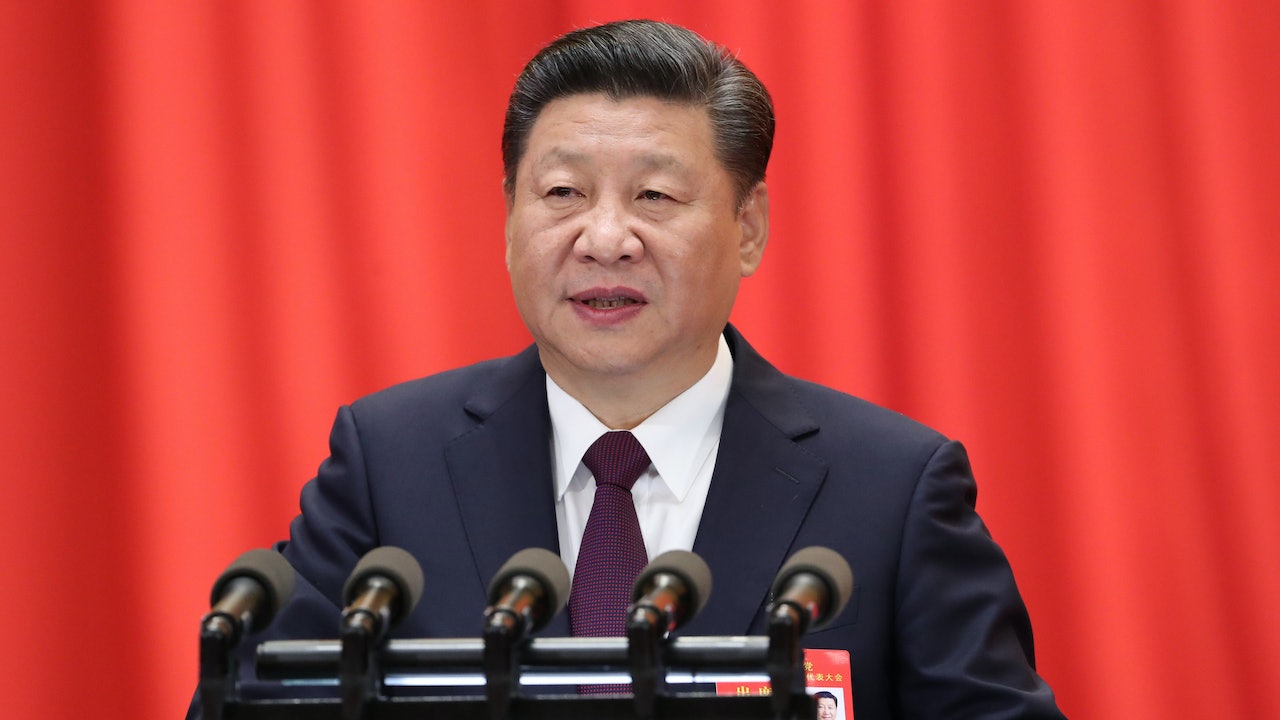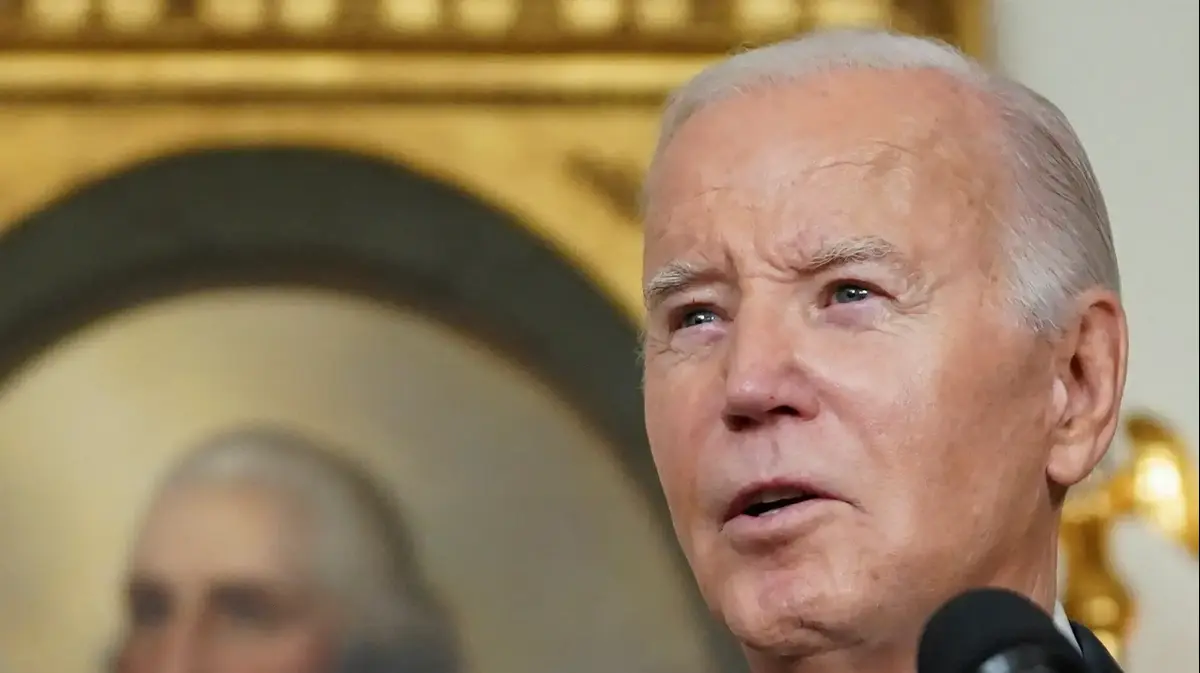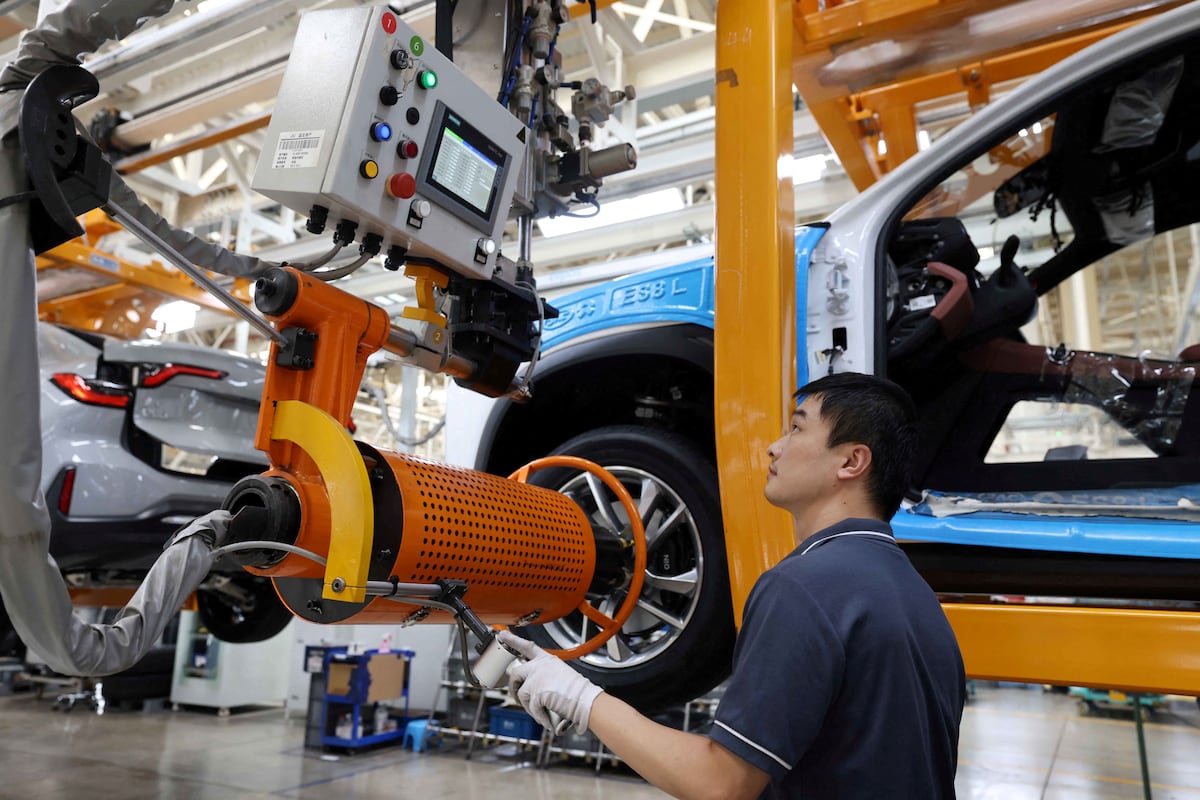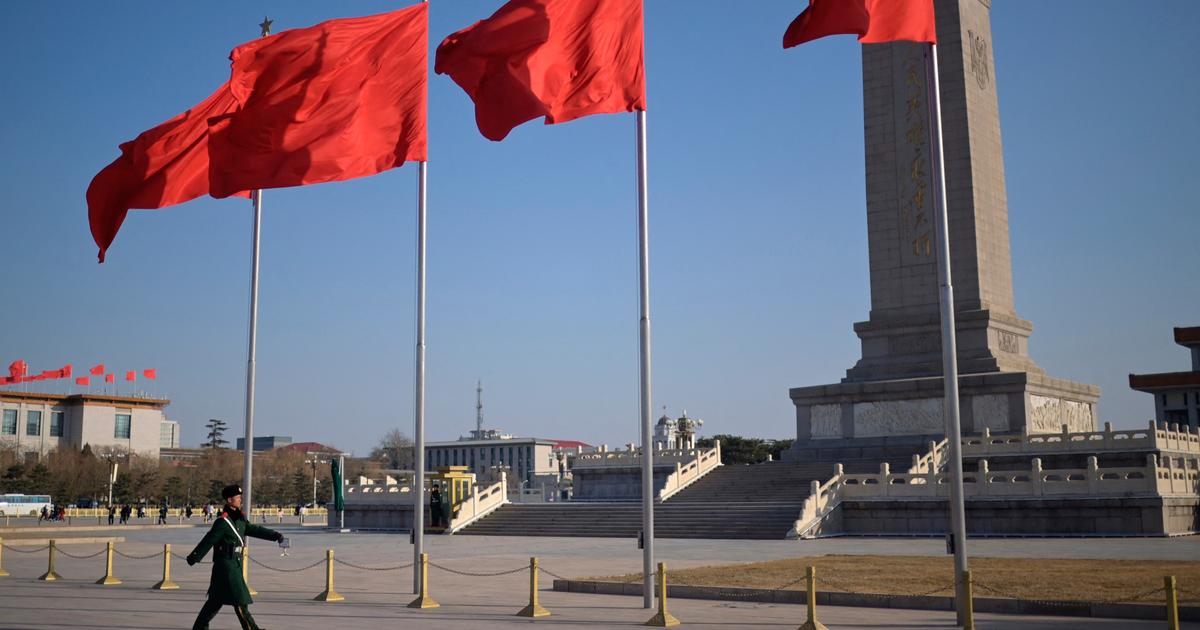The 20th National Congress of the Communist Party of China will be held on October 16. At present, the theme of the conference has not been officially announced. However, according to the news released by mainland official media, "the new journey of building a modern socialist country in an all-round way and marching towards the second centenary goal" It may be one of the main axes, and the major theoretical viewpoints and major strategic ideas established in the report of the 20th National Congress of the Communist Party of China must be written into the party constitution. It is generally expected that the situation may be judged and developed in the next five years or even longer. new discourse.
Another point to watch is Taiwan policy, especially a possible roadmap for resolving the Taiwan issue.
Prospects of the 20th National Congress of the Communist Party of China︱There may be no new formulations of economic policies, not an ideological issue Three major challenges need to be cautious Prospects of the 20th National Congress of the Communist Party of China|From the combination of the two powers to the unification of the two powers to strengthen the "comprehensive governance" of Hong Kong, the Prospects of the 20th National Congress of the Communist Party of China | Xi Jinping frequently mentions "historical self-confidence" and "five self-confidence" or will be released
The "New Era Party's Overall Strategy for Solving the Taiwan Issue" has been written into the "Third Historical Resolution" at the Sixth Plenary Session of the 19th Central Committee of the Communist Party of China in 2021. In addition, the foundation of mutual trust between China and the United States on the Taiwan issue has continued to grow in recent years. Challenged by the U.S. "Taiwan card", including U.S. House of Representatives Speaker Nancy Pelosi (translated as Pelosi or Polosi) recklessly visiting Taiwan, Beijing took advantage of the situation to issue "The Taiwan Issue and the New Era" in August. The White Paper on China's Reunification" also started the "normalization" of military operations around the Taiwan Strait through the six-region military exercise around Taiwan, which is considered to be a "rehearsal" for the PLA's military unification of Taiwan.
It can be expected that "the Party's overall strategy for solving the Taiwan issue in the new era", which is the culmination of "Comrade Xi Jinping has put forward a series of important concepts and major policy proposals on Taiwan work" since the 18th National Congress, is expected to be included in the report of the 20th National Congress of the Communist Party of China. The summary of Taiwan's policies and work results is also an action plan for solving the Taiwan issue in the future.
The intensive and frequent actions against Taiwan that have been exposed on the table recently have all made people associate with the new situation and new pattern of the Taiwan Strait that will be opened after the report of the 20th National Congress of the Communist Party of China, and have created a greater space for imagination.
The "Resolution of the Central Committee of the Communist Party of China on the Party's Centenary Achievements and Historical Experience" adopted by the Sixth Plenary Session of the 19th Central Committee of the Communist Party of China, and "The Party's Overall Strategy for Solving the Taiwan Issue in the New Era" have been written into it.
(Associated Press)
The report of the 19th National Congress of the Communist Party of China has more than 800 words.
What possible changes will occur in the Taiwan-related discourse in the 20th National Congress of the Communist Party of China?
Let’s first review the discussion in the report of the 19th National Congress of the Communist Party of China. There are three main parts of the content related to Taiwan.
1. The first part of the full text, "The Work and Historic Changes of the Past Five Years", mentions:
Adhere to the one-China principle and the "1992 Consensus", promote the peaceful development of cross-strait relations, strengthen cross-strait economic and cultural exchanges and cooperation, and achieve a historic meeting between leaders of the two sides.
Properly respond to changes in the situation in Taiwan, resolutely oppose and contain "Taiwan independence" separatist forces, and vigorously maintain peace and stability across the Taiwan Strait.
2. The third part of the full text "The Thought and Basic Strategies of Socialism with Chinese Characteristics for a New Era" states:
We must adhere to the one-China principle, adhere to the "1992 Consensus", promote the peaceful development of cross-strait relations, deepen cross-strait economic cooperation and cultural exchanges, and encourage compatriots on both sides of the strait to jointly oppose all activities that split the country, and jointly strive for the great rejuvenation of the Chinese nation.
On October 18, 2017, the 19th National Congress of the Communist Party of China opened, and the mainland started the live broadcast mode for all people.
(Visual China)
3. The eleventh part of the full text, "Adhering to 'One Country, Two Systems', and Promoting the Reunification of the Motherland" has the most ink and contains five paragraphs:
Solving the Taiwan issue and realizing the complete reunification of the motherland is the common aspiration of all Chinese sons and daughters and the fundamental interests of the Chinese nation.
We must continue to adhere to the principle of "peaceful reunification and one country, two systems", promote the peaceful development of cross-strait relations, and advance the process of peaceful reunification of the motherland.
The one-China principle is the political foundation of cross-strait relations.
The "1992 Consensus" embodying the one-China principle clearly defines the fundamental nature of cross-strait relations and is the key to ensuring the peaceful development of cross-strait relations.
By acknowledging the historical facts of the "1992 Consensus" and agreeing that both sides of the strait belong to one China, the two sides of the strait will be able to conduct dialogue and resolve issues of concern to compatriots on both sides of the strait.
The compatriots on both sides of the Taiwan Strait are brothers of flesh and blood who share a common destiny, and a family whose blood is thicker than water.
We uphold the concept of "cross-strait being one family," respect Taiwan's existing social system and the way of life of Taiwan compatriots, and are willing to take the lead in sharing the development opportunities of the mainland with Taiwan compatriots.
We will expand cross-strait economic and cultural exchanges and cooperation to achieve mutual benefit, and gradually provide Taiwan compatriots with the same treatment as mainland compatriots in the mainland to study, start a business, work and live, so as to enhance the well-being of Taiwan compatriots.
We will promote compatriots on both sides of the strait to jointly promote Chinese culture and promote spiritual harmony.
We resolutely safeguard national sovereignty and territorial integrity, and will never tolerate a repeat of the historical tragedy of national division.
All activities to split the motherland will be firmly opposed by all Chinese people.
We have firm will, full confidence, and sufficient ability to thwart any form of "Taiwan independence" separatist attempts.
We will never allow anyone, any organization, any political party, at any time, in any form, to separate any piece of Chinese territory from China!
Comrades!
Achieving the great rejuvenation of the Chinese nation is the common dream of all Chinese people.
We firmly believe that as long as all Chinese sons and daughters, including compatriots from Hong Kong, Macao and Taiwan, follow the trend of history, share the national justice, and firmly grasp the fate of the nation in their own hands, they will be able to jointly create a bright future for the great rejuvenation of the Chinese nation!
2049 has implied the finish line of the cross-strait reunification process
All of the above Taiwan-related content adds up to just 800 words, accounting for less than 3% of the 32,000 words in the full text.
If you only look at the above three parts, you will have an optimistic "illusion", believing that the CCP reiterates the "One China Principle" and the "1992 Consensus" as before, and continues to "softer softer and harder ones". "Hard" old tune, and even think that it has the possibility of making concessions to Taiwan.
In fact, after the opening report of the 19th National Congress of the Communist Party of China on October 18, 2017, many think tanks, media and politicians in Taiwan had such interpretations and perceptions at that time.
On the afternoon of October 25, 2017, Xi Jinping met with representatives of the 19th National Congress of the Communist Party of China, specially invited representatives and attendees at the Great Hall of the People in Beijing.
(Xinhua News Agency)
Even William Stanton, the former director of the American Institute in Taiwan (AIT), said in an interview that "Xi Jinping did not mention a unified timetable in his speech to Taiwan at the 19th National Congress of the Communist Party of China." .
Therefore, if you only read the 800 words of Xi Jinping's speech to Taiwan and ignore the major policies and principles declared in the entire political report of the CCP, it is indeed easy to make serious misjudgments.
At that time, the reporter of "Hong Kong 01" looked at this political document that took into account both internal and external, and had a deep historical depth. He observed that Xi Jinping talked about cross-strait relations and national reunification, which can be said to be included in the "great rejuvenation of the Chinese nation". , is an important part of the "Chinese Dream" of building a modern socialist country with Chinese characteristics, and it is a prerequisite for this task.
In other words, to understand Xi Jinping's understanding of Taiwan's reunification and cross-strait relations, one should focus on his explicit declaration of "national rejuvenation" and "reunification of the motherland" in his vision of the "Chinese Dream."
Looking at this context, we believe that this important political document has implied a timetable for the reunification of Taiwan.
In the report of the 19th National Congress of the Communist Party of China, the "two centenary" goals have been subdivided in two stages. In 2021, the 100th year of the CCP's founding of the Communist Party, the goal is to "build a moderately prosperous society in an all-round way." A beautiful modern socialist country" to realize the great rejuvenation of the Chinese nation.
Zheng Yongnian, a famous scholar, believes that for China's overall development, society as a whole, and the CCP, the Taiwan issue is a matter of the will of the country, not just the leaders of the CCP.
(Hong Kong 01)
As Zheng Yongnian, a well-known scholar familiar with mainland politics, said: "Just imagine, if there is no reunification, where will the Chinese dream come from?" Therefore, the timetable for the reunification of Taiwan has actually been written in the goal of the great rejuvenation of the Chinese nation in 2049. .
If at this point in time, the two sides of the Taiwan Strait are still divided, how can it be called "national rejuvenation"?
Judging from the degree to which Hong Kong 01 has grasped the CCP’s politics, in the era of Xi Jinping, if the Taiwan issue can be resolved as soon as possible, of course, it will be resolved as soon as possible. 2049 is a time node that cannot be delayed, but subjectively it will not be delayed to the CCP. The final processing will not be done until 2049, the century after the establishment of the government.
An observer familiar with Beijing's political decision-making once analyzed the "Hong Kong 01" reporter after the report of the 19th National Congress of the Communist Party of China was released: This report is equivalent to announcing to Taiwan that "the Republic of China has only 32 years left at most".
Changes in the "two big picture" from the 19th to the 20th National Congress
The 20th National Congress represents China's political cycle into Xi Jinping's third term, but it still falls under the "new era" as officially defined by the CCP.
It is foreseeable that the basic framework and discussion of the Taiwan-related part of Xi Jinping's report to the 20th National Congress may continue the tone of the report of the 19th National Congress. It is an indispensable part of the new journey of a modern socialist country, marching towards the second centenary goal" and "the great rejuvenation of the Chinese nation".
However, in the five years from the 19th National Congress to the 20th National Congress of the Communist Party of China, both the "international" and "domestic" situations in the eyes of the CCP have undergone considerable changes. Even if it is Joe Biden's turn in the United States, the The structural contradiction between China and the United States has not only not eased, but has also moved to a higher-risk deep-water area; not to mention the back-to-back strategic cooperative relationship formed between China and Russia, through the Russian-Ukrainian war, has greatly affected the reorganization of the world power structure.
It has become a consensus that Taiwan, which is at the forefront of geopolitical collisions, has become the "most dangerous place on the surface", and the resulting geo-risks have been squeezed under the "hundred-year change" situation of "rising in the east and falling in the west". more prominent.
On August 26, on the same day that Tsai Ing-wen met with the visiting delegation of US dignitaries, the Eastern Theater of the People's Liberation Army issued a notification that recently, a multi-service and arms joint combat readiness patrol and actual combat drills were organized in the sea and airspace around Taiwan, and it was proposed for the first time that this was organized according to the changing situation in the Taiwan Strait. "Normalization" of military operations.
(Xinhua News Agency)
After the report of the 19th National Congress of the Communist Party of China, Beijing did not repeat the old tune of Taiwan as people in the United States and Taiwan think. Instead, it took the lead in throwing out the heavy bullet of the "Two Systems Taiwan Plan" initiative at the beginning of 2019, and started the process of substantive reunification.
In 2021, the centenary meeting of the founding of the Communist Party of China sounded the rallying call again. Xi Jinping stood on the Tiananmen gate in a Chinese tunic suit and raised his arms to shout to "realize the complete reunification of the motherland" and "resolutely smash any 'Taiwan independence' attempt", which was greeted with unprecedented applause.
It shows that the "sooner rather than later" reunification of Taiwan is not only the official inner calculation, but also the expectation of the 1.4 billion people for the CCP.
At the same time, the CCP named the list of "Taiwan independence" diehards three times, imposed sanctions on their sponsors and affiliates, blocked Taiwan's agricultural and fishery products from the mainland several times, and required components imported and exported through the mainland to be marked "Taiwan, China". ".
More importantly, the PLA's military aircraft and ships circled around Taiwan, crossed the "central line of the strait", "normalized" military exercises, and launched a legal battle against the United States in non-"international waters" in the Taiwan Strait.
These practices were unexpected in Taiwan at the 19th National Congress of the Communist Party of China in 2017, but after five years of preparation and fermentation, they have now become the "new normal" in the Taiwan Strait.
In the past, the word "Huitai" that everyone in Taiwan was talking about was still a progressive style, but the word "unification" or even "wutong" has become a new hurdle in front of the Taiwanese people and is more imminent than any period in the past. .
"Overall strategy" three major imaginations after the new game
As a retrospective and forward-looking "top-level design" document, the Twenty Political Reports should be written and expressed in a form that "should be rough rather than detailed", in line with the nature of its "general program".
In fact, Liu Jieyi, director of the Taiwan Affairs Office of the State Council, wrote a 4,000-word long article in the People's Daily on July 7, "Striving to Promote the Process of Motherland Reunification on a New Era and New Journey", from the overall goal, strategic thinking, basic policy, basic Eight aspects, including standpoint, main approach, inevitable requirements, spiritual power, and fundamental guarantee, clarify the skeleton structure of the "overall strategy".
When the "overall strategy" is included in the report of the 20th National Congress of the Communist Party of China, it means that Beijing's work with Taiwan will be more consistent and stable in the future.
However, considering the changes in the Taiwan Strait as listed above, and recognizing the CCP's thinking and logic towards Taiwan, what kind of new pattern will the "overall strategy" be written into the report?
In fact, from some details, the following three imaginary meanings that are not difficult to imagine can be sniffed out.
1. The "implementation details" of the "overall strategy" may be under consideration
The report of the 19th National Congress of the Communist Party of China first reviewed the achievements and shortcomings of the previous five years. Following the "Historical Mission of the Communist Party of China in the New Era" is a total of 14 articles "The Thought and Basic Strategies of Socialism with Chinese Characteristics for a New Era".
Today, the CCP has consolidated the action plan for advancing the reunification process into "the Party's overall strategy for solving the Taiwan issue in the new era."
On January 2, 2019, Xi Jinping delivered a speech at the 40th anniversary meeting of the "Message to Compatriots in Taiwan", proposing the "Two Systems Taiwan Plan" initiative.
(file picture)
When the "programme of action" has been formally established, the next step to consider is how to implement it.
In Beijing's perception, the "Two Systems Taiwan Plan" has actually been included in the "overall strategy", as a set of "unified plans" prepared by Beijing at the future negotiation table. If the "overall strategy" is determined to be written in In the report of the 20th National Congress, more detailed "implementation details" may be released in a foreseeable short period of time, which will give more weight to the negotiation plan in its pocket.
In the current discussions, the framework of the Basic Law required for the unification process, the composition of the Basic Law drafting committee, etc., as well as the "post-unification" governance blueprint, may all come to the fore in the future.
2. "Promoting reunification" is more important than "anti-independence", and "army reunification" is the backing of "harmonious reunification"
The keynote of the report of the 19th National Congress is "anti-independence" and "harmony", these two elements will not disappear in the report of the 20th National Congress.
The first part of the report to the 20th National Congress of the Communist Party of China will definitely review the work of the previous five years, and "anti-independence" or "combat Taiwan independence" should be listed as "achievements".
Since it is a "result", it is bound to be continued, and it will be implemented in the next policy toward Taiwan. It will continue to show tougher warnings. If Taiwan moves past the red line of "Taiwan independence", the action may be more severe, from political, The military, diplomatic, economic and other means of attack are multi-pronged.
After the 20th National Congress of the Communist Party of China, the CCP's possible measures to tighten Taiwan, Taiwan scholar Zhao Jianmin once predicted that the economic pressure is worrying; the political aspect may formulate the implementation rules of the "Anti-Secession Law", or it may be interpreted through legislation, similar to Hong Kong. The practice of the regional national security law, re-interpretation and clarification of the relevant culpability of the "Anti-Secession Law".
As for the expression of reunification, it is not difficult to imagine that in the report of the 20th National Congress of the Communist Party of China, it is not difficult to imagine that it will reiterate that "willing to continue to strive for peaceful reunification with the greatest sincerity and best efforts".
The "1992 Consensus" with the connotations of "one China" and "seeking reunification" is bound to be repeatedly emphasized as a "password for customs clearance" for peaceful exchanges, peaceful contacts, and peaceful negotiation between the two sides of the strait.
In addition, from the 17th National Congress of the Hu Jintao era to the 19th National Congress of the Xi Jinping era, the words "no commitment to renounce the use of force" did not appear in the report.
However, in the third white paper on the Taiwan issue issued at the time of the fierce battle of the Taiwan Strait, it clearly stated that "we do not promise to renounce the use of force and reserve the option of taking all necessary measures, targeting the interference of external forces and the very few" "Taiwan independence" separatists and their separatist activities are by no means aimed at Taiwan compatriots, and non-peaceful means will be the last choice made under last resort."
In addition, after Pelosi's visit to Taiwan brought about a series of turmoil in the Taiwan Strait, the situation has become increasingly complex and sharp. As Sun Yafu, vice president of the China Association for the Maritime Affairs, said: "Don't separate and oppose peaceful reunification and military reunification, because peace and reunification, Wutong is two considerations and two choices for Taiwan's strategy." The "non-peaceful" "wutong" method may take an increasingly important part in Beijing's overall layout of Taiwan.
The Taiwan Affairs Office of the State Council and the Information Office of the State Council released the white paper "Taiwan Issue and China's Reunification in the New Era" on August 10, further reaffirming the fact and status quo that Taiwan is a part of China, demonstrating the firm will of the Communist Party of China and the Chinese people to pursue the reunification of the motherland and Resolutely resolve to expound the position and policies of the Communist Party of China and the Chinese government in advancing the realization of the reunification of the motherland in the new era.
(file picture)
3. The reunification timetable is advanced, and a waiting period for negotiation is set for Taiwan
The goals set by the CCP always have a predetermined timetable, and the whole party and the whole country are devoted to achieve the set goals at the preset time.
For example, on July 1, 2021, Xi Jinping announced that "China will build a moderately prosperous society in an all-round way", completing the goal of "the first century".
However, achieving the goals ahead of schedule is not without precedent. The report of the 19th National Congress of the Communist Party of China clearly stated that "the two goals of solving the problem of food and clothing for the people and achieving a well-off life in general have been achieved ahead of schedule."
Beijing has repeatedly declared that the political differences between the two sides of the strait "can never be passed down from generation to generation", adding that "we are closer, more confident and capable of achieving the goal of the great rejuvenation of the Chinese nation than we have ever been in history."
Then, as the country's overall strength continues to develop and complete, and at the same time, there are "time bombs" provoking the Taiwan Strait from the West of the United States and the DPP government, as well as the "popular hope" from the mainland's public opinion for the realization of reunification, and the realization of national rejuvenation in 2049. Before the finish line, the reunification of Taiwan ahead of schedule is highly possible in terms of both subjective and objective conditions.
The writing style of the report of the 20th National Congress may continue from the report of the 19th National Congress of the Communist Party of China, which is in line with the dialectical thinking of the CCP.
For example, the report of the 19th National Congress of the Communist Party of China listed a "three-step" schedule for the road to strengthening the PLA. Will the report of the 20th National Congress include the goal of the "hundred-year" struggle of the PLA in 2027?
If so, the timetable for resolving the Taiwan issue will bring new room for interpretation.
On the morning of July 1, 2021, Xi Jinping attended the "Celebrating the 100th Anniversary of the Founding of the Communist Party of China" on the Tiananmen Gate and delivered a speech, declaring that "solving the Taiwan issue and realizing the complete reunification of the motherland is the unswerving historical task of the Communist Party of China, and it is the responsibility of all The common aspiration of Chinese sons and daughters".
(Xinhua News Agency)
Or the report of the 19th National Congress of the Communist Party of China used the "two fifteen-year" phased goals as an aid to achieve the "second centenary" goal, which itself has the meaning of "step-by-step" to achieve unity.
Under the general goal of the "two centuries", if the official divides the auxiliary stage goals into a more detailed division, it means that the confidence in the overall construction of the country is getting higher and higher, and it also means that the pace of reunification will only be advanced. will be delayed.
Another point worth paying attention to is that since the "Two Systems Taiwan Plan" was proposed in early 2019, this bullet has been flying for more than three years, and it has always been treated coldly or ignored by Taiwan.
Given the CCP's character and Xi Jinping's style of work, since the firm will and determination to pursue the reunification of the motherland has been continuously demonstrated, the "Two Systems Taiwan Plan" is unlikely to be empty talk.
"Hong Kong 01" once analyzed that the third white paper on the Taiwan issue is to some extent a call for Taiwan to negotiate again.
And the historical experience of Hong Kong's handover negotiations also tells everyone that Deng Xiaoping and Margaret Thatcher talked like this in 1982, "sovereignty is not an issue that can be discussed", we can only talk about the handover issue. Since the handover issue is quite complicated, Negotiations have to start early, I think no later than 1984.
If by then you are not willing to talk to me, I reserve the right to act.
The Sino-British negotiation on the issue of Hong Kong's return began, and an agreement was reached in 1984. The two sides signed the "Joint Declaration".
After the 20th National Congress of the Communist Party of China, whether Beijing will set a final negotiation waiting period with Taiwan on an unexpected occasion in a manner of "no later than how long" is also a possible trend that requires special attention.
In general, from the perspective of the CCP, the reunification of Taiwan has been deeply embedded in the process of the great rejuvenation of the Chinese nation and the realization of the Chinese dream. The roadmap laid out by the 19th National Congress of the Communist Party of China will not be easily changed by the 20th National Congress. Even sublation, but in the process of dynamic continuity, with the changes of the international and domestic situation, and adjust their own pace.
And no matter how the internal politics or political party map of Taiwan changes, Beijing has the confidence that cannot be underestimated to grasp "time and situation", "dominance" and "initiative", and advance according to its own schedule and path, "walking its own path" more and more sooner.
On the eve of the upcoming 20th National Congress of the Communist Party of China, I can already feel such a "mountain and rain".
What are the "two fifteen years" of the CCP's development?
In the report of the 19th National Congress of the Communist Party of China, Xi Jinping believes that the period from the 19th National Congress to the 20th National Congress is a period of historical convergence in the "two centenary" goals. The mid-21st century can be divided into two phases.
The first stage, from 2020 to 2035, will basically realize socialist modernization and realize the goal of "beautiful China" on the basis of building a moderately prosperous society in all respects.
In the second stage, from 2035 to the middle of the 21st century, on the basis of basically realizing modernization, we will work hard for another 15 years to build China into a great modern socialist country that is prosperous, strong, democratic, culturally advanced, harmonious and beautiful.
Xi Jinping concluded that from building a moderately prosperous society in an all-round way, to basically realizing modernization, and then to building a powerful modern socialist country in an all-round way, is the strategic arrangement for the development of socialism with Chinese characteristics in the new era.
Prospects of the 20th National Congress of the Communist Party of China︱There may be no new formulations of economic policies, not an ideological issue Three major challenges need to be cautious Prospects of the 20th National Congress of the Communist Party of China|From the combination of the two powers to the unification of the two powers to strengthen the "comprehensive governance" of Hong Kong, the Prospects of the 20th National Congress of the Communist Party of China | Xi Jinping frequently mentions "historical self-confidence" and "five self-confidence" or will be released











/cloudfront-eu-central-1.images.arcpublishing.com/prisa/KMEYMJKESBAZBE4MRBAM4TGHIQ.jpg)


